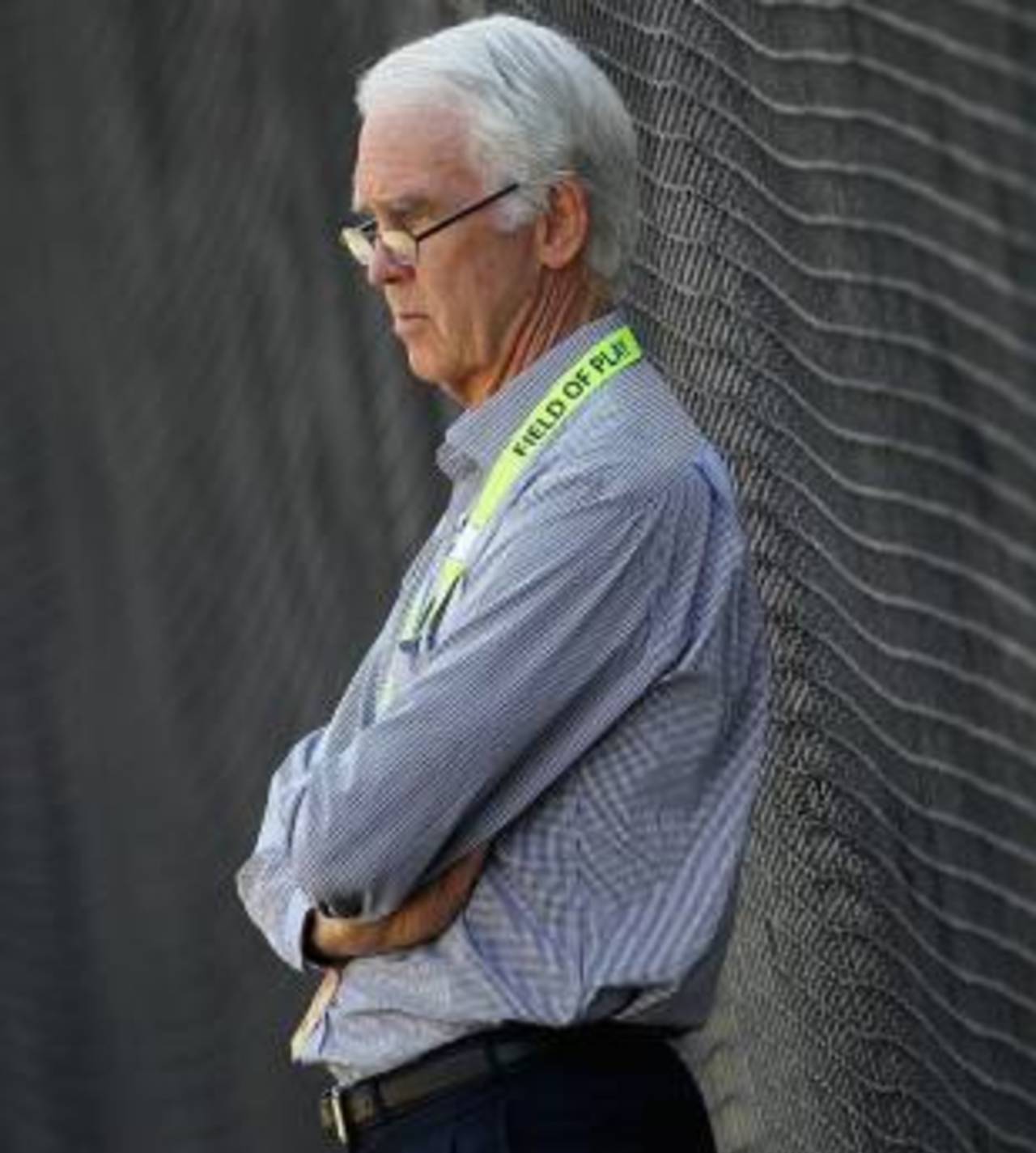Selectors can't have it both ways
If Australia's selectors expect informed public debate on player rotations, they must be prepared to inform the public.
Brydon Coverdale
Jan 14, 2013, 7:04 AM

John Inverarity and his fellow selectors kept mum on the specifics of why certain bowlers were rested. Not surprisingly, that left plenty of room for the media to criticise the resting of players • Getty Images
The national selector John Inverarity is one of the more unflappable members of Cricket Australia's staff. He backs his decisions, explains them publicly and worries little about criticism. A lifetime of involvement in the game has given him good reason to have such confidence. So it was notable at the announcement of Australia's ODI squad on Monday when Inverarity interrupted while being asked a question about player rotations.
"I presume you mean informed player management," Inverarity said to the journalist, before the question had been completed.
It was a testy response and it suggested a growing frustration from Australia's selectors at the way their rotating of players - sorry, informed player management - is being viewed by the media and the public. The coach Mickey Arthur expressed similar views on Sunday night. Their annoyance is understandable. There was an outcry when Mitchell Starc was left out of the Boxing Day Test, despite the plan having merit, as there had been when Peter Siddle and Ben Hilfenhaus sat out of the Perth Test against South Africa earlier in the summer. And again when Michael Clarke, David Warner and Matthew Wade were rested from the first two ODIs against Sri Lanka.
But if Inverarity and his fellow selectors expect informed public debate, they need to inform the public.
Siddle and Hilfenhaus had endured a heavy workload in the second Test in Adelaide, where James Pattinson had broken down mid-match, and the short gap before the Perth Test did not help their recovery. On the eve of the Test, the captain Michael Clarke announced that Siddle and Hilfenhaus would be left out because "both guys are still quite fatigued after Adelaide".
As the Perth Test wore on, it emerged that the pair had not simply been rested, but had specific injury niggles. Siddle had a tight hamstring and Hilfenhaus a sore knee. But that information wasn't revealed before the match. Not surprisingly, that left plenty of time for the media to criticise the resting of players.
"Peter Siddle after the Adelaide game a) was exhausted and b) had a really tight hamstring," Inverarity said on Monday. "If he'd played it was unlikely that he'd have got through the game. It was the right decision."
And when Starc was left out in Melbourne, there was still more criticism of the decision. He had bowled Australia to victory in the previous Test in Hobart. He had emerged as a Test cricketer for the first time. But in the lead-up to the Boxing Day Test, Inverarity said Starc's workload was a concern and he would not play both the Melbourne and Sydney Tests. After Sunday's ODI loss in Adelaide - three weeks after Boxing Day - Arthur revealed there was more to it.
"He had an ankle impingement," Arthur said. "He's got spurs that are going to require an operation at some stage. We're hoping that will be a year down the line, but at some stage that is going to give in. There was no point in us playing him in a Boxing Day Test match and risk losing him for the one-day series and then for a tour of India. That would've been plain stupid."
During the same interview, Arthur said: "I've been really annoyed and frustrated by some of the articles that have been going around. For me it's common sense. It's either very naive or just a little bit stubborn that people don't understand what we're doing."
For Arthur and Inverarity, it might be common sense. But did the public know Starc had bone spurs in his ankle? Did the media? No. They were not told. If they had been, the selectors might have found they had far more support. But if information is withheld, public discourse cannot be anything but naïve. Of course people won't understand what the selectors are doing. How can they? Strangely, Inverarity seems happy with the process.
"I don't think it's in the interests of the player to reveal every little niggle. I don't," Inverarity said. "Players don't want to be seen as vulnerable or physically suspect, and we respect that. That's the right decision. We won't always say that he's got a bit of a bad knee, because then more can be made of it and it's awkward for the player. We'd rather take the heat than the players."
You can't have it both ways. The selectors are not obliged to explain every inclusion or exclusion, or reveal every minor injury. But if they don't, they shouldn't sell the public the "informed player management" line. Nor should they be surprised when their decisions are questioned.
Brydon Coverdale is an assistant editor at ESPNcricinfo. He tweets here